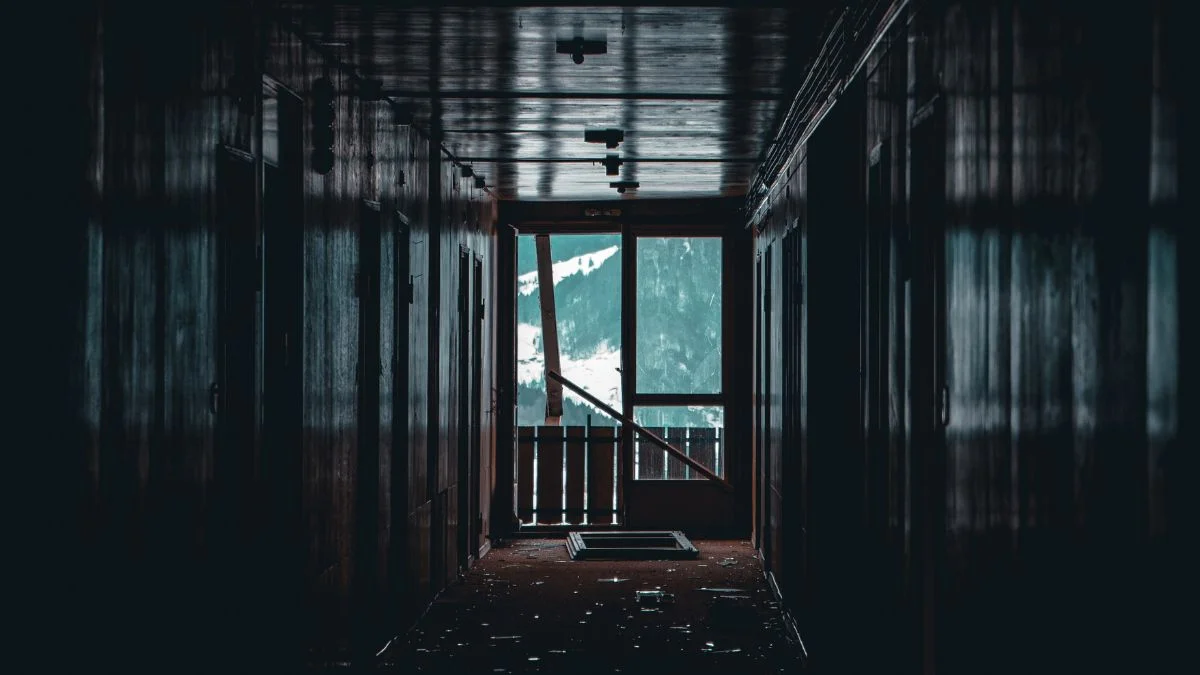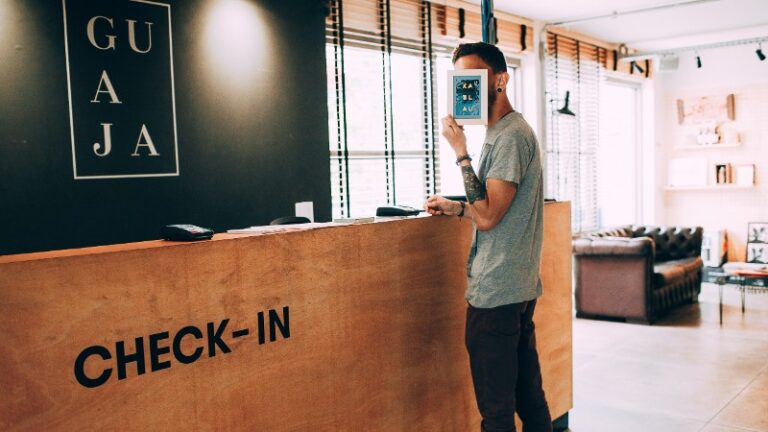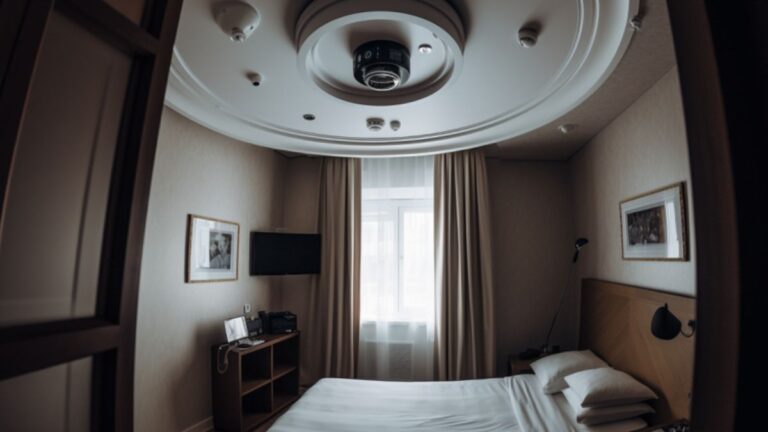Why Is There No Room Number 13 Or The 13th Floor In The Hotel? Superstitions Explained

As participants in Amazon Associates and other programs, we earn from qualifying purchases. This comes at no additional cost to you. For more details, see our Affiliate Disclosure.
For many people, the number 13 is synonymous with bad luck, and it’s common to see buildings, especially hotels, omitting the number 13 or the 13th floor entirely. This superstitious practice is known as triskaidekaphobia, which is the fear of the number 13.
Many theories exist about the origins of this superstition, including religious beliefs, historical events, and cultural practices. Despite the lack of concrete evidence, the superstition continues to persist in many parts of the world, and hotels often avoid the number 13 in their room numbering and floor plans to appease superstitious guests.
In this article, we’ll explore the history and reasons behind the absence of the number 13 in hotels and why this practice is still prevalent today.
The Origins of Triskaidekaphobia: A Brief History of the Fear of 13
The fear of 13, or triskaidekaphobia, has a long and complex history that spans across different cultures and time periods. Some historians trace the roots of this superstition back to ancient Babylon, where the number 13 was associated with death and the afterlife. In Norse mythology, the god Loki was said to be the 13th guest at a banquet where he caused chaos and mayhem, cementing the idea that 13 was an unlucky number.
In Christian tradition, the fear of 13 is often linked to the Last Supper, where Jesus and his 12 disciples gathered for a meal before his crucifixion. According to the Bible, Judas Iscariot, who later betrayed Jesus, was the 13th guest at the table. This association with betrayal and death helped to reinforce the idea that 13 was an unlucky number.
The fear of 13 has also been linked to various historical events, such as the arrest of the Knights Templar on Friday the 13th in 1307, and the Apollo 13 space mission, which experienced a near-fatal accident. These events, along with cultural practices like skipping the 13th floor in buildings, have helped to perpetuate the idea that 13 is an unlucky number. Despite the lack of scientific evidence to support this belief, the fear of 13 continues to thrive in many parts of the world.
Superstitious Beliefs Across Cultures: How the Fear of 13 Persists Today
The fear of 13 is not limited to one particular culture or region, but is instead a widely recognized superstition across the world. In some countries, such as Italy, the number 13 is considered to be a lucky number, while in others, it is associated with misfortune and bad luck. In China, for example, the number 13 is often avoided because it sounds similar to the word for “definitely death” in Chinese.
In the United States, skipping the 13th floor in buildings is a common practice, and many hotels and hospitals omit the number 13 from their room numbering and floor plans. This practice is also prevalent in other parts of the world, such as India, where the number 13 is often skipped in street addresses, phone numbers, and building floors.
Despite the lack of scientific evidence to support the belief that 13 is an unlucky number, the fear of 13 continues to persist today. In fact, some studies have suggested that triskaidekaphobia is so deeply ingrained in our culture that people who are born on the 13th of the month are more likely to experience negative events, such as accidents or illnesses. Whether or not there is any truth to this superstition, the fear of 13 remains a potent force in many people’s lives.
Unlucky Numbers in Religion and Mythology: The Role of Superstition in Hotel Design
Superstition has played a significant role in the design of hotels and other buildings throughout history, with many designers and architects avoiding certain numbers and symbols that are believed to bring bad luck. In addition to the fear of the number 13, other numbers are also considered unlucky in different cultures and religions.
For example, in many Asian cultures, the number 4 is associated with death and is often avoided in building design and room numbering. This is because the Chinese word for “four” sounds similar to the word for “death,” making it an unlucky number.
In Hinduism, the number 3 is considered unlucky, as it is believed to represent separation and disharmony. As a result, some hotels in India may avoid using room numbers that contain the number 3.
In addition to numbers, certain symbols and shapes are also considered to be unlucky in different cultures. For example, the swastika, which was originally a symbol of good fortune in Hinduism and Buddhism, is now widely associated with the atrocities committed during World War II and is considered to be a symbol of hate and oppression.
The role of superstition in hotel design highlights the powerful influence that cultural beliefs and traditions can have on our perceptions and behaviors. By avoiding certain numbers and symbols, hotel designers hope to create an environment that feels safe and welcoming to guests. However, these practices also reflect the enduring power of superstition in our lives, and the ways in which our beliefs and fears can shape our experiences of the world around us.
From Elevators to Room Numbers: How Hotels Avoid the Number 13
Hotels around the world often avoid using the number 13 in their room numbering and floor plans, as well as in other areas of their buildings such as elevators and hallways. The practice of skipping the number 13 is based on the fear of the number, known as triskaidekaphobia, which is prevalent in many cultures.
In some hotels, the 13th floor is skipped entirely, with the numbering going directly from 12 to 14. In others, the 13th floor may be renamed to something else, such as “12A” or “14th Floor Club.” Similarly, some hotels may avoid using the number 13 in room numbering, using numbers such as 12B or 14 instead.
The fear of the number 13 is so deeply ingrained in our culture that some hotels may even take extra steps to avoid any associations with the number. For example, a hotel may ensure that there are no rooms that end in the number 13, or that the numbers on the floors below and above the 13th floor add up to a lucky number, such as 12+1=13 or 14-1=13.
The practice of avoiding the number 13 may seem irrational, but for many people, it is an important way to ward off bad luck and ensure a safe and pleasant stay in a hotel. By understanding the cultural and psychological roots of triskaidekaphobia, we can gain insight into the power of superstition and the ways in which it shapes our behavior and beliefs.
A Rational Explanation? Debunking the Myths and Exploring the Science of Superstition
The fear of the number 13 and other superstitions may seem irrational, but they are deeply ingrained in many cultures and are often taken very seriously by those who believe in them. However, some researchers and psychologists argue that there may be rational explanations for why people hold onto these beliefs.
One theory is that superstitions provide a sense of control and predictability in an unpredictable world. By following certain rituals or avoiding certain numbers or symbols, people may feel that they have some control over their fate and can avoid bad luck.
Other researchers have suggested that superstitions may be linked to our evolutionary past. Humans evolved to be highly attuned to patterns and associations in our environment, which helped us to survive in a dangerous and unpredictable world. Superstitions may be a byproduct of this evolutionary adaptation, as we tend to see patterns and associations where there may not be any.
In addition, recent studies have shown that there may be a neurological basis for superstitions. For example, some research suggests that the brain’s reward centers may be activated when we engage in superstitious behaviors, providing a sense of pleasure and satisfaction.
Despite these possible explanations, there is still no scientific evidence to support the idea that the number 13 or other superstitions actually bring bad luck. However, superstitions remain a powerful force in many people’s lives, and their influence on our behavior and beliefs cannot be ignored.
By understanding the science behind superstitions, we can gain insight into the ways in which our brains and cultural backgrounds shape our beliefs and perceptions of the world around us.
The Future of Triskaidekaphobia: Will Hotels Continue to Avoid the Number 13?
The practice of avoiding the number 13 in hotels and other buildings has been around for centuries, and it shows no signs of disappearing anytime soon. Despite the lack of scientific evidence to support the idea that the number 13 brings bad luck, the fear of the number remains deeply ingrained in many cultures around the world.
As society becomes more rational and science-based, it’s possible that the fear of the number 13 and other superstitions may decline over time. However, as long as people continue to believe in the power of superstitions, it’s likely that hotels and other businesses will continue to avoid using the number 13 in their designs and marketing.
In some cases, the fear of the number 13 may even be seen as a marketing opportunity. Some hotels and airlines have created special promotions or packages around the idea of the “unlucky” number, such as offering discounted rates on the 13th of the month or in room number 13.
Ultimately, the future of triskaidekaphobia and the avoidance of the number 13 in hotels and other buildings will depend on the beliefs and attitudes of individuals and cultures around the world. As we continue to learn more about the science of superstition and the ways in which our beliefs shape our experiences, it’s possible that the fear of the number 13 may become less prevalent in our society.
However, for now, it remains a powerful and persistent superstition that continues to influence the way we design and experience our built environment.






